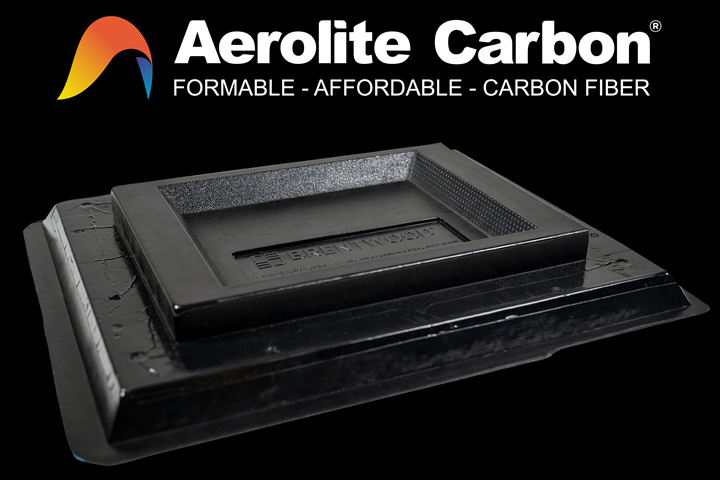Westlake Plastics, Environmental Composites launch thermoformable carbon fiber composite
Aerolite Carbon is an advanced carbon fiber/thermoplastic material designed for fast, large-volume parts manufacture on existing equipment.
Share
Read Next

Source | Environmental Composites Inc.
Westlake Plastics Co. (Lenni, Pa., U.S.) and Environmental Composites Inc. (Utica, N.Y., U.S.) have jointly launched Aerolite Carbon, a carbon fiber textile designed for compatibility with standard thermoforming equipment such as vacuum forming or pressure forming.
Aerolite Carbon was developed jointly by thermoplastic extrusion specialist Westlake Plastics and advanced textile specialist Environmental Composites. The product is an advanced carbon fiber textile impregnated with a proprietary thermoplastic alloy resin. According to the companies, the material’s chemistry and construction enables it to stretch uniformly when heated to form deep draws and sharp angles on simple one-sided tooling.
According to the companies, the product supports large-volume applications with standard 4' × 8' sheet size, capable of being processed in under 2 minutes. Aerolite Carbon was developed to deliver better economy and throughput than existing composite materials, while using an existing global supply chain for part conversion. Aerolite Carbon targets both consumer and industrial applications seeking lightweight performance products at minimal cost.
Complex geometry formation and as-molded cosmetic finishes are said to be achievable through a single-step forming process and a proprietary carbon fiber-reinforced sheet design. Color matching, as-molded textures, class A surfaces and custom graphics are also said to be possible with the material.
Related Content
-
The potential for thermoplastic composite nacelles
Collins Aerospace draws on global team, decades of experience to demonstrate large, curved AFP and welded structures for the next generation of aircraft.
-
Plant tour: Albany Engineered Composites, Rochester, N.H., U.S.
Efficient, high-quality, well-controlled composites manufacturing at volume is the mantra for this 3D weaving specialist.
-
Infinite Composites: Type V tanks for space, hydrogen, automotive and more
After a decade of proving its linerless, weight-saving composite tanks with NASA and more than 30 aerospace companies, this CryoSphere pioneer is scaling for growth in commercial space and sustainable transportation on Earth.

.jpg;width=70;height=70;mode=crop)











